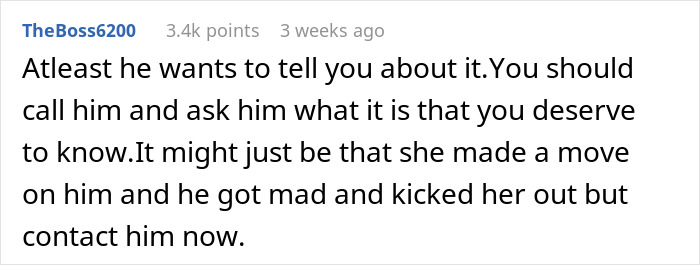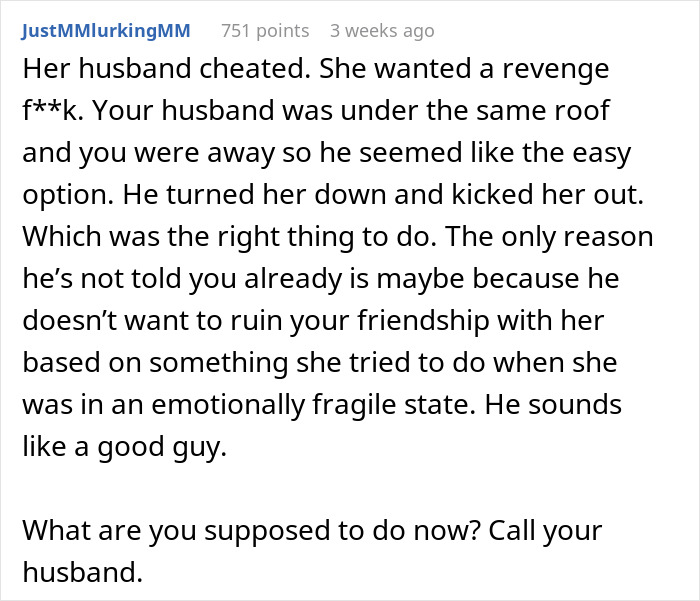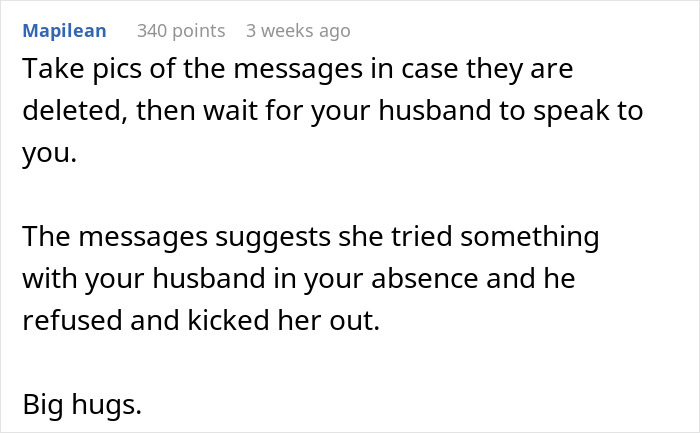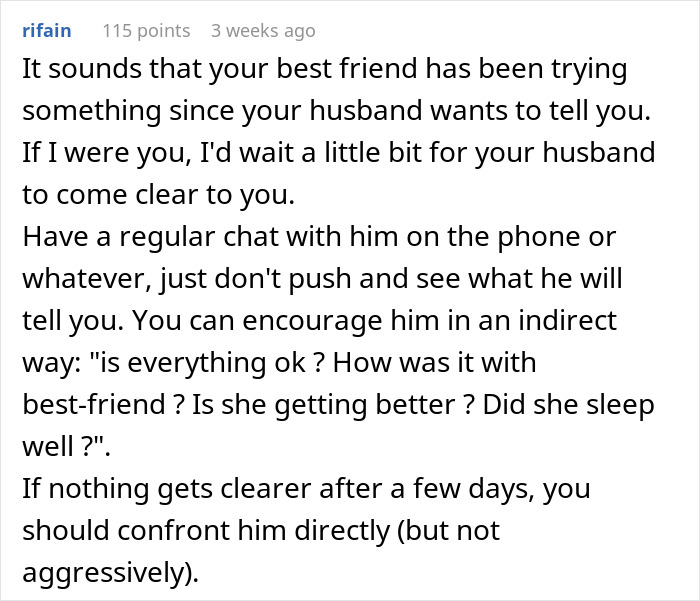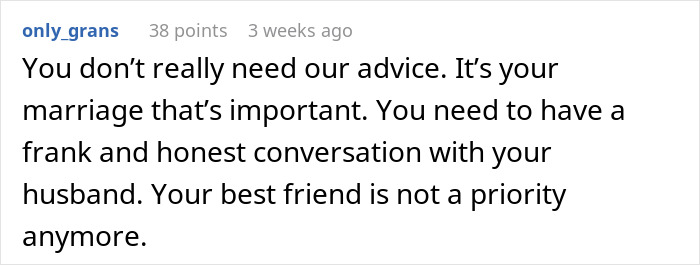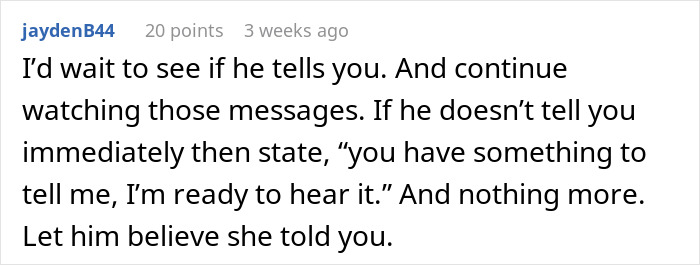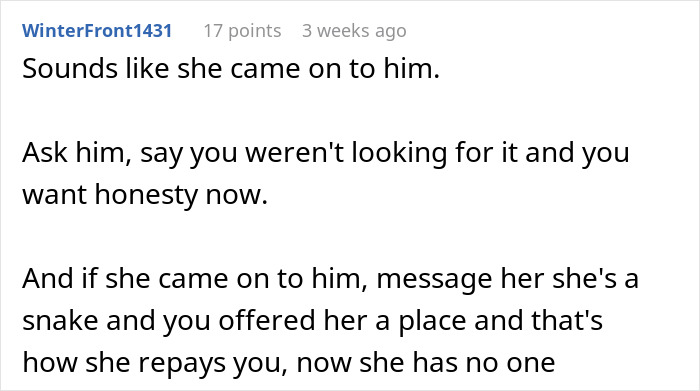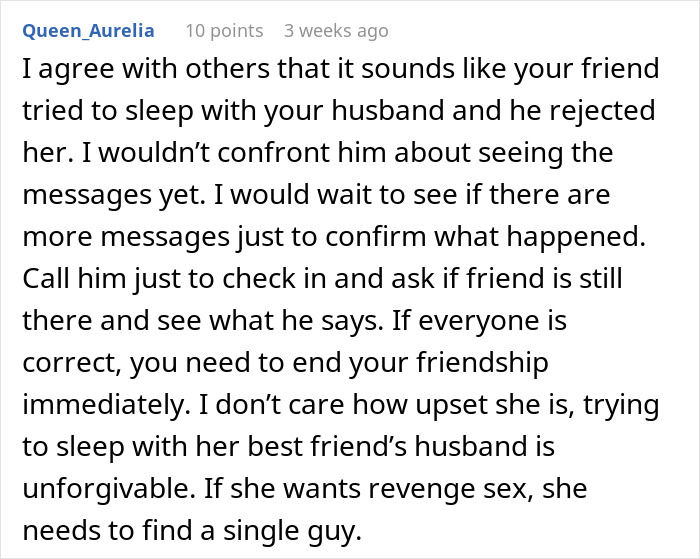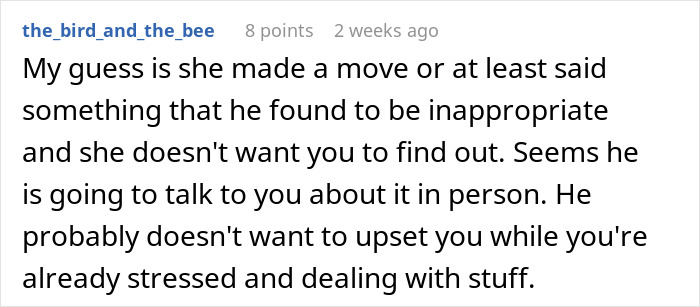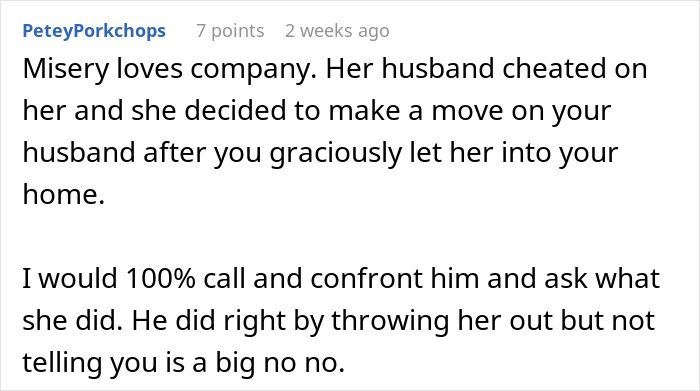Best friends are supposed to have your back, not try to sneak behind it. But, every once in a while, someone decides to test the boundaries of friendship in the most awkward way possible – by making a move on their best friend’s partner. It’s the kind of situation that makes you wonder if loyalty is just a suggestion for some folks.
One Redditor found herself in the middle of this dilemma when her best friend tried to seduce her husband while she was out of town, taking care of her sick mother.
More info: Reddit
When you let your best friend crash at your place, you don’t expect her to crash your marriage, too

Image credits: Freepik / Freepik (not the actual photo)
One woman finds out her best friend tried to kiss her husband and hide it while she was out of town, quickly ending their friendship
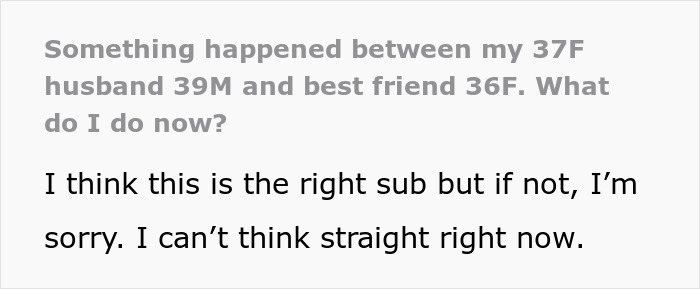
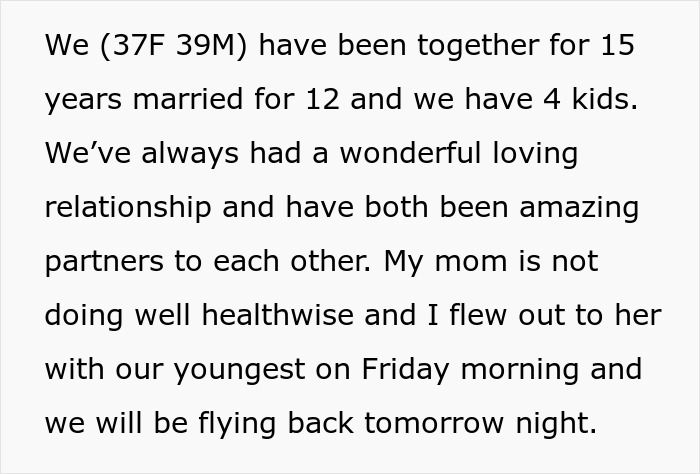
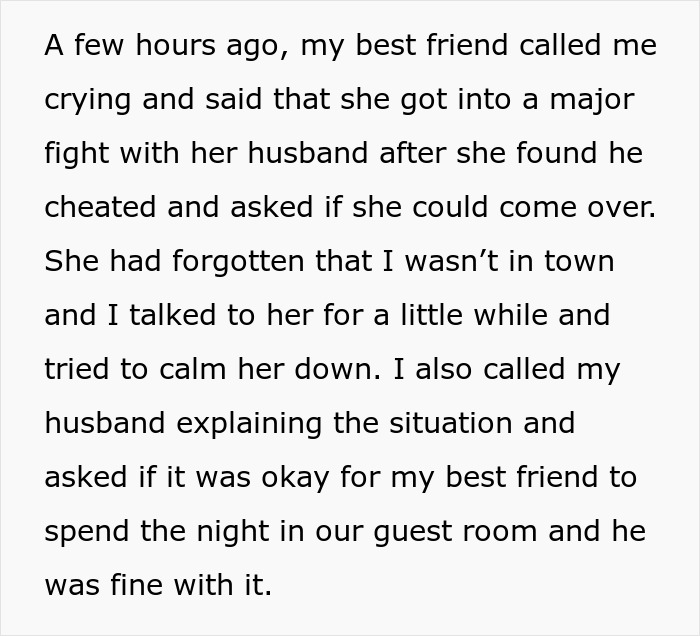

Image credits: Freepik / Freepik (not the actual photo)
The woman’s friend has a fight with her husband and asks to stay over at her place, but she’s out of town, so she asks her husband to prepare the guest room for her




Image credits: Freepik / Freepik (not the actual photo)
The woman tries to seduce her best friend’s husband, but he pushes her away, so she bombards him with messages, asking him to keep it a secret


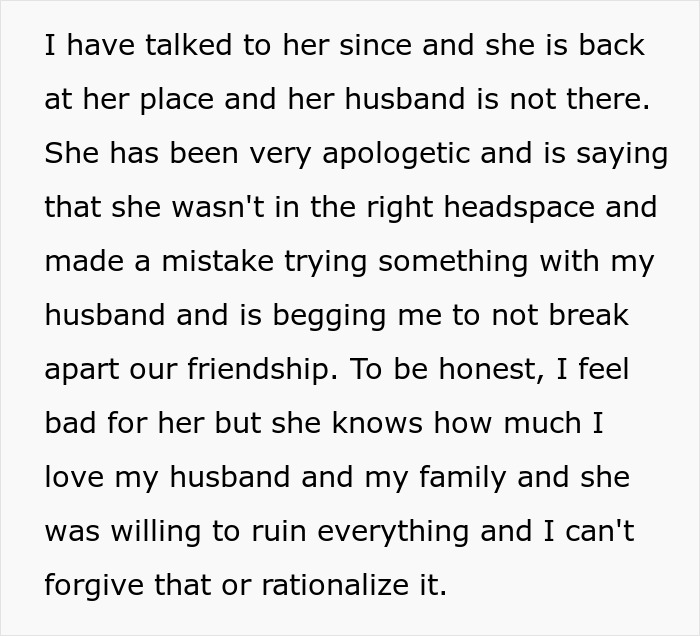
Image credits: ThrowRAgurver
The woman ends her relationship with her best friend after her husband confesses she tried to kiss him while she was out of town
The OP (original poster) has been married to her husband for 12 years. Together for 15, they’ve built a strong partnership and a family with 4 kids. Life wasn’t just good, it was great. But, as life often does, a big curveball was thrown the OP’s way.
Her mom’s health took a turn, and she had to fly out of town with her youngest to tend to her while her hubby stayed back.
But, out of nowhere, the OP’s best friend called her crying. Turns out, she had just found out her own husband cheated, and she needed a shoulder to cry on. Since the OP was away, she coordinated with her husband so that her best friend could crash in their guest room. Sounds innocent enough, right? Well, not so fast.
The OP, who had her husband’s iMessages synced to the family iPad, stumbled across a series of texts between him and her best friend. And let’s just say, they weren’t planning surprise party logistics. The messages hinted that something had happened between them.
Apparently, bestie dearest wanted to keep it all hush-hush, while hubby was adamant that his wife deserved the truth. But what exactly happened? Had the OP’s husband strayed? Was the best friend trying to make a move?
Turns out, the friend, fresh from her emotional crisis, apparently thought it was a stellar idea to cross a boundary—or maybe ten. She attempted to sit on the man’s lap and kiss him, not once, but twice.
The OP’s husband pushed her away and told her to leave, and then waited for his wife to return to share the whole story. I guess this bestie wanted a free upgrade from her friend’s guest room to her husband’s lap.

Image credits: gpointstudio / Freepik (not the actual photo)
Since then, her apology tour has been in full swing. She claims she wasn’t in the right headspace, made a mistake, and wants to salvage their friendship. But the OP isn’t buying it. While she feels bad for her now ex-bestie’s tough circumstances, she knows that trust, once broken, doesn’t mend easily.
You know, trust isn’t just given, it’s earned. When someone you’ve let into your inner circle tramples on that trust, it forces you to reevaluate everything. Rebuilding trust means taking time to heal, setting firm boundaries, and leaning on those who’ve proven their loyalty.
Experts often suggest that dealing with betrayal involves both emotional recovery and a clear decision about who deserves to remain in your life. And let’s face it, the OP’s ex-bestie didn’t make the cut, so she decided it was best to cut ties with her, as hard as that may be.
I get it, it’s not easy to end a friendship, but sometimes it’s better for you in the long run. When someone betrays you, doesn’t respect your boundaries, or makes you feel like you are the only one making an effort in the relationship, you know it’s time to end that friendship.
Because our friendships play a significant role in our overall well-being. Studies even back this up. The quality of our friendships can impact stress levels, physical health, and coping mechanisms. While a strong, supportive friendship can boost your mental and physical health, a tumultuous one may increase stress and harm your well-being.
What would you do if you were in the poster’s shoes? Could you forgive a friend like that, or is this the ultimate dealbreaker? Drop your thoughts in the comments below!
Netizens side with the woman, saying her best friend probably wanted to get revenge on her cheating husband
